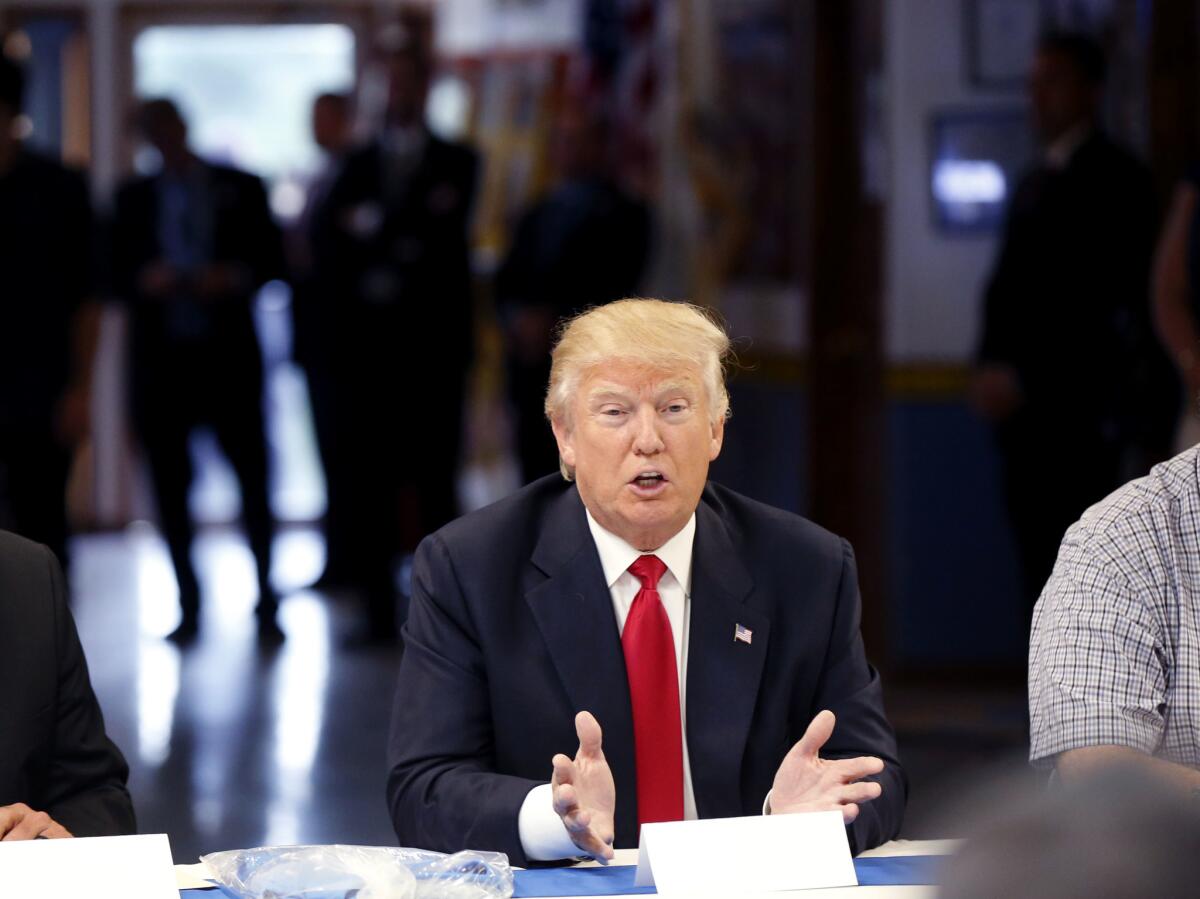Judge whom Trump criticized as ‘hater’ now hearing key deportation case

Juan Manuel Montes, 23, is suing to find out why he was deported. (Sign up for our free video newsletter here http://bit.ly/2n6VKPR)
Last summer, U.S. District Court Judge Gonzalo Curiel of San Diego was thrust into the center of the presidential campaign.
Curiel presided over the lawsuit against Trump University and was heavily criticized by then-candidate Donald Trump in a way that some critics considered racist. Trump claimed Curiel’s Mexican heritage made him biased against Trump, who had railed against illegal immigration and Mexico during the campaign.
Now Curiel is back in the national spotlight, in a case involving President Trump and his immigration policies.
What is the new case?
Curiel has been assigned the case of Juan Manuel Montes Bojorquez, 23, who claims he was wrongly deported to Mexico by border agents in Calexico in February. His lawsuit specifically seeks to force the government to release information about his case.
Montes, who came to the U.S. when he was 9 years old, since 2014 has been allowed to live and work in the country under the Deferred Action for Childhood Arrivals, or DACA, program, whose participants are often called “dreamers.”
The Department of Homeland Security claimed Wednesday Montes no longer qualified for DACA protection.
Under Trump, there has been a rise in deportations of people who had DACA status but lost it.
Montes’ situation came to light Tuesday when he sued the Trump administration in U.S. District Court in San Diego. The civil suit alleges that he had been wrongly deported to Mexico by officials who refused to tell him why.
The suit claims the government is in violation of the Freedom of Information Act because no records have been released on Montes’ case, despite numerous requests, which is a violation of the statute. It asks the court to order the government to release those records.
His attorneys say Montes was detained by Border Patrol officials on Feb. 17 in Calexico and deported.
Who is Curiel?
Before becoming a judge, Curiel served as a narcotics prosecutor with the U.S. attorney’s office in San Diego, eventually rising to chief of the unit. From 1989 to 2002, he built a reputation as a tough, effective lawyer in charge of a special task force charged with dismantling the Arellano-Felix drug cartel — an assignment that earned him round-the-clock protection from the U.S. marshals for a year while under a death threat from the cartel.
Curiel played a major role in a crucial step in the campaign against the cartel when he worked to get top cartel lieutenant Arturo “Kitty” Paez Martinez extradited from Mexico in 2001. It was the first time that a Mexican citizen had been extradited to face charges here — a precedent that cleared the way for the continuing extradition of drug figures in the 15 years since.
He also got high marks as a federal judge.

Why did Trump criticize Curiel?
Curiel is presiding over two class-action lawsuits filed against Trump over his now-defunct Trump University real estate seminars, for which some people paid up to $35,000.
Trump said Curiel was a “hater” and referred to the Indiana-born judge as a Mexican.
“They ought to look into Judge Curiel,” he said.
Trump said Curiel’s ethnic heritage — his parents were Mexican immigrants — made him biased.
Trump also criticized Curiel’s membership in La Raza Lawyers Assn., apparently confusing the professional organization with an activist group that goes by a similar name.
Curiel never publicly responded to Trump’s attacks, and the cases were settled a few months ago.
Michael Smolens writes for the San Diego Union Tribune. Carcamo writes for The Times.
Click here for a Spanish version of this story
ALSO
Feds say they didn’t deport ‘Dreamer,’ but acknowledge error on his DACA status
Deportations of ‘Dreamers’ who’ve lost protected status have surged under Trump
‘Dreamer’ threatened with deportation in Seattle is released after weeks of detention
More to Read
Sign up for Essential California
The most important California stories and recommendations in your inbox every morning.
You may occasionally receive promotional content from the Los Angeles Times.










